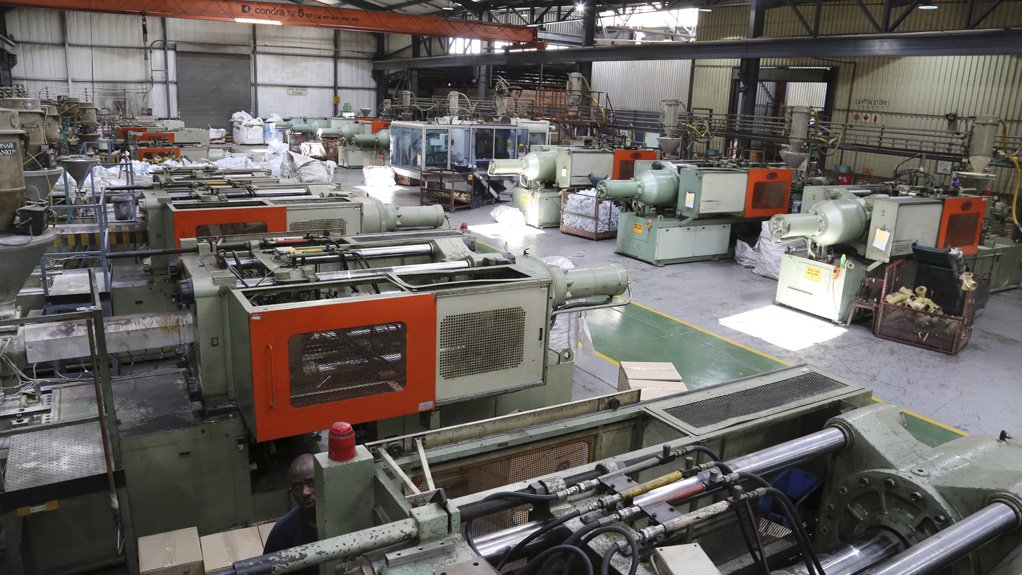In enabling future-generation customers to be part of the smartphone and digital application (app) future, pipes manufacturer DPI Plastics is developing its own internal pipeline design and flow calculator app to assist design, consulting and civil engineers in designing and implementing new pipelines and/or upgrading existing pipelines and water reticulation systems.
DPI Plastics estimates that the app will be ready for the market to download before the end of the year and possibly within the next two months, says DPI Plastics marketing manager Martine Goodchild.
Stressing the importance of digital and online strategies, Goodchild cites a survey by the Africa Business Panel, which last month noted that the smartphone penetration rate in Africa increased from 75% to 89% between 2013 and 2015 and continued to grow at a rapid rate.
“The continent over the years has also seen strong growth in mobile broadband use and data traffic, [which] has resulted in increased levels of communication among the public and companies attempting to become more agile in their business operations,” according to the survey.
“[As] DPI Plastics has to think in terms of digital, online and smartphone strategies . . . the traditional hard-copy/printed technical manuals and cardboard slide rules that the engineers used to calculate water flow, pipe size and friction loss are being developed into a smartphone Android and IOS app,” Goodchild explains.
The app will incorporate a water flow calculator and traditional engineering formulae covering discharge, water flow and friction losses to design pipe systems and will integrate DPI Plastics’ pipe product information for engineers to design or calculate pipe performance and efficiency, DPI Plastics technical and product manager Renier Snyman notes.
The app will also be able to calculate the cost of the pipeline, such as the pumping costs for a year, for example.
Advantages of the app include easy use of the information on a handheld device in the field or online.The app also increases calculation accuracy, Snyman says.
The app forms part of DPI Plastics’ latest innovations, which were showcased at Plumbdrain Africa 2016, a dedicated plumbing, drainage, sanitation, water, sanitaryware and plumbing engineering exhibition, in Johannesburg, last month.
Key products highlighted at the event included the Ultrapipe, an ongoing evolution of the company’s Ultracor multilayer, polyvinyl chloride (PVC) sewer pipe and a greener alternative, according to Snyman.
While Ultrapipe still uses virgin PVC material for the skins, the traditional foamed inner core is now replaced with recycled PVC material. The Ultrapipe currently outsells the Ultracor at a ratio of 4:1.
This is because consumers choose more environment-friendly alternatives to traditional sewer products, Goodchild stresses.
Other current developments at DPI Plastics include various capital-intensive projects to boost the quality and productivity at its Johannesburg and Bellville manufacturing facilities.
These include an ongoing mould replacement programme, which started at the beginning of the year at the company’s Roodekop manufacturing facility, in Johannesburg, Gauteng.
The programme has seen the production of new mould fittings, as well as a brand-new mould for 50 mm bend pipe fittings.
The latest mould, a 50 mm waste bend mould that has also been expanded from a four-cavity mould to an eight-cavity mould, was delivered to the Johannesburg facility last month.
DPI Plastics has also taken delivery of its new P-trap mould, manufactured in Portugal, in addition to adding a second large-bore extrusion line at its Johannesburg manufacturing facility. This follows the installation of the original Krauss Maffei 630-mm-bore extrusion line in 2013.
“When a mould is no longer usable and repairable, DPI replaces it, where possible, with a higher- number-unit multicavity mould. It is more efficient and can provide almost double the production output,” Goodchild says.
The replacement moulds also reduce the product cycle time and thereby the lead times, while also reducing the cost of product, Snyman concludes.
Edited by: Martin Zhuwakinyu
Creamer Media Senior Deputy Editor
EMAIL THIS ARTICLE SAVE THIS ARTICLE
To subscribe email subscriptions@creamermedia.co.za or click here
To advertise email advertising@creamermedia.co.za or click here













